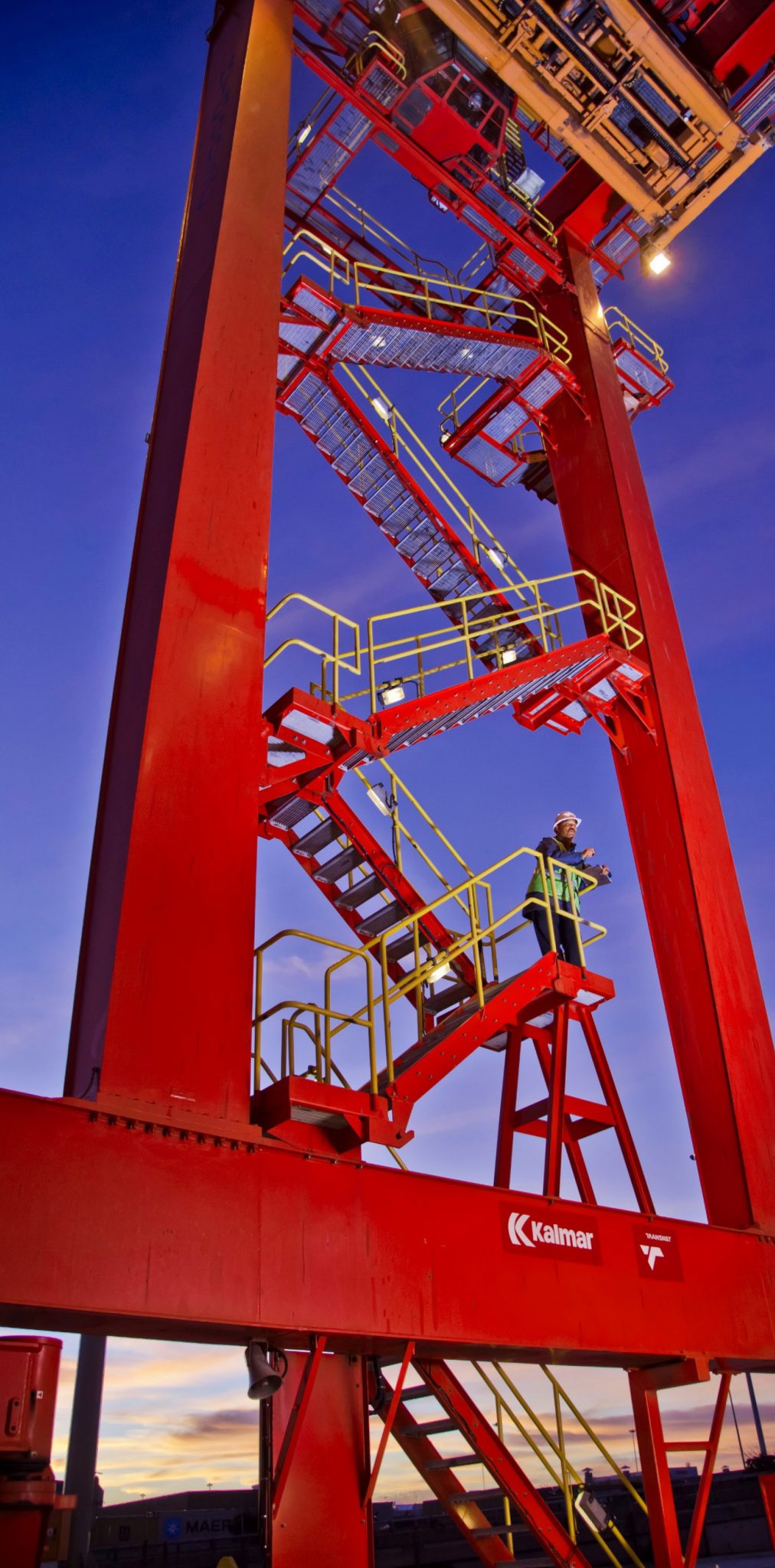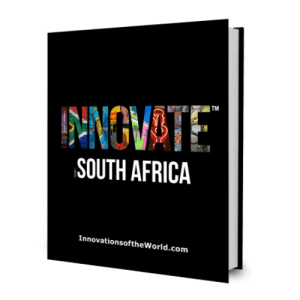INNOVATION IN THE PORT SECTOR
Innovate to Compete
Transnet Port Terminals (TPT), a division of Transnet SOC Ltd is responsible for the operations of 16 port terminals across seven of South Africa’s ports. More than 9,000 employees work diligently every day to ensure that containers, cars, bulk, and break-bulk cargo moves efficiently across the quay walls daily so that South Africa’s economy keeps pumping. The TPT Innovation Committee (TICO) provides a collaborative platform for employees to share their enthused ideas on a regular basis. The head office TICO chaired by Willie Coetsee coordinates the initiatives and contributions from regional TICO’s. The regional committees consist of volunteers representing the different departments and functional streams within the business – from operations to support functions such as finance, procurement, IT, Risk management and people management and are chaired by Innovation Champions. Such a structure allows for diversity in the ideation process.

It all started about three years ago when the business recognized the need to create a channel for employees to share their ideas. An innovation strategy was compiled explaining the purpose of innovation, providing an understanding of the different types of innovation, aligning to other functions such as continuous improvement, structures, processes, and procedures as well as creating a recognition and reward system. Initially, a small team was put together to ensure that the function receives the
necessary attention and gathers momentum. Currently, this team has been redeployed and the process is fully reliant on volunteers. However, the function provides a great deal of value-adding services, such as:
- Training and development: One of the team members, Aneesa Nassar attended a Design Thinking (DT) training programme at UCT’s D-School. She subsequently recommended that TPT trains Innovation Champions and other interested employees on this human-centered design approach at all terminals across the country. This team of trained employees then assisted in embedding the Design Thinking Methodology through workshops and ‘Think Tank’ sessions that were facilitated in-house. These initiatives resulted not only in savings of training costs but also expanded the DT mindset at TPT.
- Innovation Campaigns: TPT HQ Innovations initiated and managed campaigns that resulted in significant ideas and solutions, such as the COVID-19 campaign. Ideas generated from these campaigns were implemented and have resulted in effective processes at the terminals during the pandemic to reduce absenteeism and improve safety practices.
- In Durban, TPT ran a campaign to understand how employees experience their jobs during bad weather and how employees’ working lives could be improved whilst serving customers and other stakeholders better.
- Another DT Workshop in Durban assisted in generating solutions to enhance safety in terminal operations.
- Saldanha DT Workshop assisted in generating Environmental solutions for the Iron ore concerns at the terminal.
- An East London DT Workshop identified socio-economic issues surrounding the port and through engagement with the community, were able to formulate practical and sustainable solutions.
- These business units have expressed their appreciation of the benefits of having a TPT Innovations team. A team that supports the business and adds value by approaching problem-solving from a different perspective.
- Support to regional champions: regional champions have core deliverables and are unable to focus solely on their terminal innovations. Having a HQ structure affords them the support they need to gain traction on innovations and ensure the reporting of innovations.
- Marketing Innovative thinking at TPT through Internal Alerts: These are ways to motivate others to innovate but also highlights great work done by TPT employees. These have been further shared with Transnet Group for a wider audience, contributing to TPT’s positive image, especially with competitors and clients.
- Assists with research that are pertinent to driving Innovations at TPT.
The real heroes are not the team that provided the structure, but the actual people that identified the opportunities to improve the workplace. Over the three years, TPT has seen ordinary people come up with extraordinary ideas. TPT celebrated these contributions through awards to recognize their creativity and efforts towards TPT.
One of our first innovation winners was Riaan Drotskie who developed a Belt Tear & Ore spillage Detector. TPT experienced an incident in the Saldanha port where a piece of metal was wedged on the conveyor belt that transports iron ore from the stockpile 2km away to the ship. The piece of metal created a tear across a large section of the belt costing TPT R26 million to fix. Riaan and his team developed a machine that holds an arm over the iron ore and when a protruding piece pushes against it, it trips the
conveyor belt before it can cause any damage.
After an unfortunate incident in Richards Bay where an employee lost his life working on a conveyor belt, TPT installed guardrails on the sides of the belt. However, these were not tamper-proof and the guards could simply be removed without stopping the belt. Siyabulela Diya developed an alarm that would trigger when the guardrails were tampered with without stopping the system, thus preventing further loss of life.
Thulani Khombisa developed a paperless system for the Eastern Cape after calculating the cost and time involved in printing. Kesvan Naidoo from TPT’s Durban terminals developed a FTC Mobile Rostering System that saved on overtime and created a more equitable overtime schedule.
Ebrahim Salasa developed a system that would convey wind data from sensors on our port equipment directly to cellphones. This assists us with accurate monitoring of weather conditions, especially in a port like Cape Town where we can’t afford unnecessary stoppages whilst the wind is not exceeding safe operating speeds.
There are other innovations that have been identified and the team is working on now. Cargo Connect is one such innovation. Cargo Connect is an online platform, developed under the leadership of Dr. Darren Fraser that integrates comprehensive logistics information and facilitates the rapid identification of optimal providers for required logistics services as well as providing much-needed sight of cargo movements within the port.
Equipment automation is a contentious issue in a labour intensive environment, but TPT has a team of engineers under Rofhiwa Takalani that are developing the concept and design of semi-automated equipment. TPT’s information technology team is also continuously looking at ways to better utilize operating systems.
Collaboration with key stakeholders in the innovation space is important for growth and synergy. TPT has been working closely with Innovate Durban and the eThekwini city on innovation. TPT joined DUT, EMC, Aurecon, Innovate Durban, TIA, Oracle and Adams & Adams in the Durban Youth Innovation Challenge.
Nearly 100 youths had been shortlisted to participate in this three-month-long challenge. The Maritime Youth Innovation Challenge allowed young people of eThekwini to present practical ground-breaking solutions to existing problems facing the port, using a design thinking methodology and technology. The participants were given 21 challenges across the themes of infrastructure, transport, logistics, environment, and capacity.
Workshops were held over a six-month period to assist the learners to develop innovative ideas to address the Durban port issues. Teams were given the opportunity to pitch their solutions to panels consisting of members within the maritime sector and the winners of this challenge were awarded with further exposure opportunities and support to develop themselves.
TPT is in the process of expanding the good relations built with UCT to other universities and institutions of technology. TPT acknowledges the need for students to acquire essential innovative skills over and above their core qualifications, that will help develop and sustain the South African economy.
Innovations have proven to be a vital component in business, developing resilience through challenging times such as our current experiences in South Africa and across the world. To rise above uncertainties and setbacks, organizations need to be creative and agile.
Embracing an innovative mindset positions businesses in the global supply chain with a competitive edge and inspires the way forward, one idea at a time!













